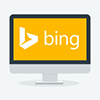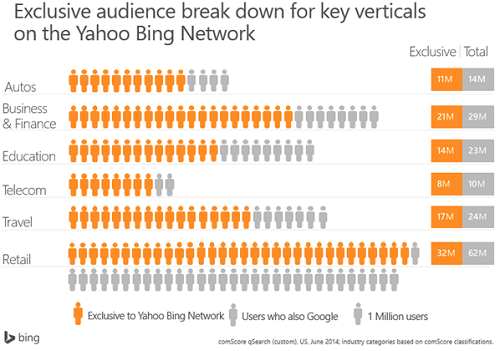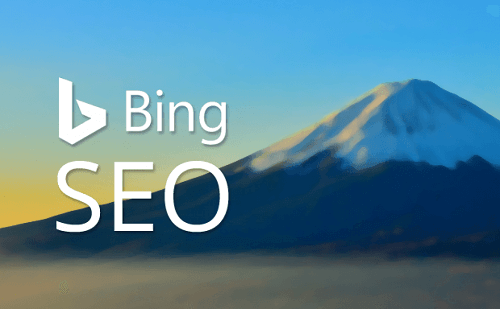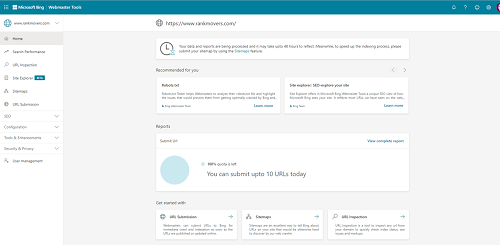Optimizing for Other Search Engines: Bing
 Whenever you think of SEO, your thoughts probably go straight to Google and optimizing for its many algorithms. While it holds the largest global market share (86,86%), Bing (6,43%) and Yahoo are catching up slowly.
Whenever you think of SEO, your thoughts probably go straight to Google and optimizing for its many algorithms. While it holds the largest global market share (86,86%), Bing (6,43%) and Yahoo are catching up slowly.
These engines have different algorithms and ranking factors, which could drive more traffic to your site. Plus, it has less competition and a partnership with Firefox to auto-install the search engine. Though Microsoft Edge remains the most-uninstalled web browser.
So, how can you start factoring these engines into your site without losing Google traffic?
Bing-Yahoo Conversions
As you’ve probably guessed, these search engines haven’t added as many strict factors to their results pages.
Plus, the difference in rank factors is a stark contrast to what’s happening over at Alphabet. For this guide, we’ll mostly concentrate on Bing because it’s getting more exclusive, long-term users.

Bing Optimization Techniques
Generally, you can use the same techniques as you would for Google, but with less effort. These are the factors that matter on Bing as opposed to Google:
Backlink Profiles
The search engine wants you to build a larger backlink profile with do-follow links and exact match anchor text (with target keywords). So, quantity trumps quality for these rankings because it signals popularity.
But you should never abuse links like reciprocals, paid links, link schemes, and any links from hacked websites. To check this, you can use tools like UberSuggest and SEMrush to check for any irregular linking.
On-Page Matters
Bing results focus on keyword matches, which places domains and exact uses at the top of SERPs. This can result in a lower bounce rate, according to SEO guru Neil Patel.
In your headings, using your exact target terms is another ranking factor, but you should use them naturally in the content.
Also, meta tags should contain your targets, and you should consider meta-keywords. As always, this search engine prizes high-quality, engaging content over generically produced strings of words.
Content Creation
As probably the most important ranking factor right now, there are three “pillars of content” to consider, namely:
- Authority – can it be trusted by users for accurate information?
- Utility – is it useful and detailed correctly for users?
- Presentation – is it easy to find and well-presented to the user?
Some things that should be included for users:
- Authors
- Correctly placed ads
- Aesthetics – images, design, videos
- Schema Markup for richer details
Social Media & Bing
In Bing’s algorithm, social media is a major ranking factor, especially social shares. Anything that’s widely shared is a positive signal that could improve organic rankings.
There was even a study that proved social media factors into rankings by Search Metrics. However, shady tactics will be noticed, like fake followers and shares from automated systems.

Using Bing Webmaster Tools
To get started on your Bing Webmaster journey, set up the webmaster tools to track your progress. Start by adding the site, then copying over a meta-tag or XML file for it.
Just like Google’s Webmaster Tools, you can submit sitemaps, your site, and choose alert preferences like crawl errors, malware, index issues, and so on.
There are also plenty of diagnostic tools you can take advantage of for back end optimization. Plus, you can add your site using your existing Google account by linking them.

User Optimization
As we mentioned before, you should always keep your user in mind and optimize for them first. The search engine is constantly becoming smarter and updating searches.
To get more traffic, you should keep users happy and engaged with your content. This includes optimizing for those all-important user intent queries.
Bing SEO Conclusion
SEO for Bing is similar to Google because both want high-quality content and user intent. So, optimizing for Bing, too, could help you gain conversions, a lower bounce rate, and better content.
Plus, it wouldn’t hurt to consider adding this to your marketing strategy to get more users. After all, there are exclusive users on Bing who prefer it to Google.


